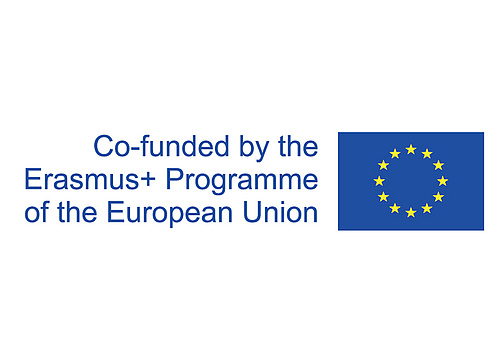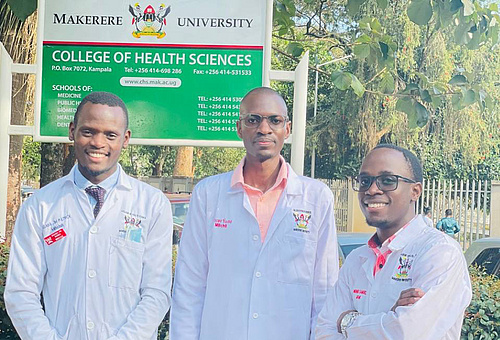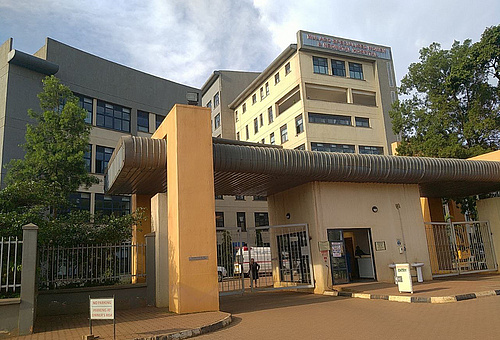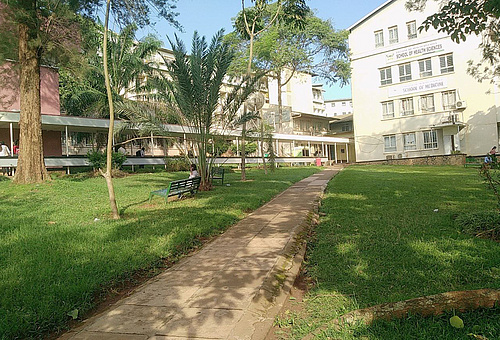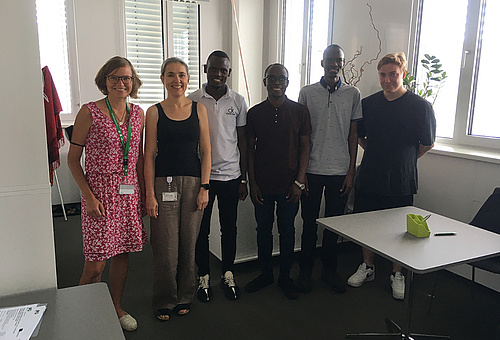-
Die Universität
- Herzlich willkommen
- Das sind wir
- Medien & PR
-
Studium
- Allgemein
- Studienangebot
- Campusleben
-
Forschung
- Profil
- Infrastruktur
- Kooperationen
- Services
-
Karriere
- Arbeitgeberin Med Uni Graz
- Potenziale
- Arbeitsumfeld
- Offene Stellen
-
Diagnostik
- Patient*innen
- Zuweiser*innen
-
Gesundheitsthemen
- Gesundheitsinfrastruktur

Makerere University: clinical traineeship and CPY opportunities in Uganda
“Prepare to immerse yourself in a rich and diverse cultural tapestry. Uganda's vibrant culture, traditions and daily life will provide you with a unique opportunity to broaden your horizons and gain a deeper understanding of global healthcare.”
(Samuel, Austauschstudierender der Makerere University in Graz)
Looking beyond the borders of Europe: gaining experience in a foreign country, an unfamiliar culture, in a healthcare system that has to make do with fewer resources and having the security of doing so within the framework of the curricular requirements of the Medical University of Graz - this opportunity is now available to Med Uni Graz students of medicine.
Why Sub-Saharan Africa?
The contact to Makerere University, founded in 1922, which is ranked 5th in the Times Higher Education Sub-Saharan University Rankings 2023, and thus one of the top-rated institutions in Africa, was established through activities of the International Office within the framework of the Austrian-African Research Network Africa-UniNet. Some interested Med Uni Graz students are drawn to the African continent every year for their compulsory clinical internships and organizing stays on site independently as freemovers is sometimes very difficult. For this reason, after the Medical University of Graz joined the network, a detailed analysis of the partners was carried out in order to identify potential cooperation partners and Makerere University emerged as the top destination, with which an unbureaucratic exchange is now possible thanks to a bilateral cooperation agreement. The added value of this organized cooperation for students of human medicine is the certainty that their achievements can also be assessed in accordance with the curricular requirements (e.g. MiniCEX, DOPS) and can then be assessed as coursework without additional effort. Furthermore, there are also competent contact persons on site who can provide support during the preparations for the stay, but also on site.
Standing in front of a patient with limited resources and coming up with innovative solutions are skills that students will definitely learn during these clinical placements. One of our first incoming student from Makerere, who was interviewed by Med Uni Graz, describes the opportunity: “It offers a unique opportunity to gain insight into medical practices in a resource-constrained yet highly effective healthcare setting. Additionally, students can expect to witness the presentation and management of diseases more prevalent in Africa, such as malaria and typhoid, broadening their medical knowledge.” To prepare for a clinical traineeship in Uganda, he also advises “Be open to adapting your clinical skills and knowledge to a resource-limited setting. It's a chance to develop creative problem-solving skills and resourcefulness, which are invaluable assets for any future healthcare professional.”
Cooperation to date
Since mid-2022, there has been cooperation between Med Uni Graz and Makerere University as part of the Erasmus+ International Credit Mobility (KA171) programme, which has already enabled staff mobility for internationalization purposes and the first three incoming student mobilities to take place. The International Office is now planning an outgoing staff mobility for 2024 to further coordinate the details on site before the first Med Uni Graz students embark on their stay.
More information:
The teaching hospitals in Kampala include the Mulago National Referral Hospital for Internal Medicine, Pediatrics, Orthopedic Surgery, Surgery and Psychiatry, as well as the Kawempe National Referral Hospital for Gynecology and Obstetrics and the Butabika National Referral Hospital for Psychiatry. If desired, students can also complete clinical placements in hospitals in more rural areas.
Places for the exchange are currently advertised in the Clinical Rotations & Research Abroad program.
Some of the student and staff mobility activities have been/will be funded via the mobility programme Erasmus+ International Credit Mobility (KA171).

